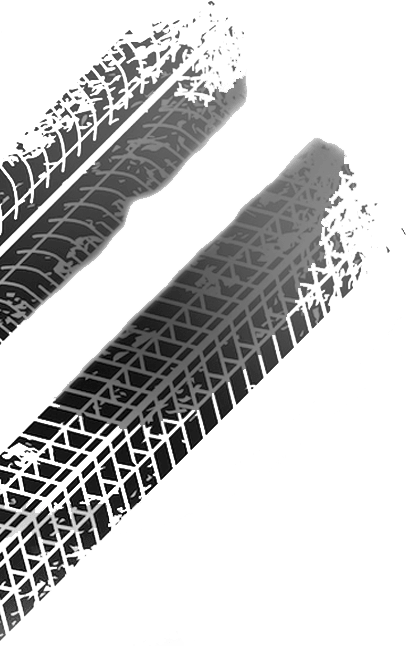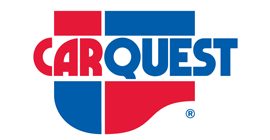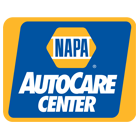
AUTONET TV
Archive for October 2010Are Modern Vehicles Maintenance Free?Posted October 28, 2010 10:00 AMIn our auto video today we'll be talking with Alan Peterson about myths surrounding automotive maintenance. You can lump these myths into the statement that "modern vehicles are so reliable, they are virtually maintenance free."
-Chalk one up for the myth.
-A point to maintenance.
-Myth gets a point.
-Point for maintenance. autoclinic of brandon
Using Proper Fluids in Your vehiclePosted October 21, 2010 1:00 AM
If you have questions about the fluids in your vehicle, please don't hesitate to stop by autoclinic of brandon. You can find us on 901A WEST BRANDON BLVD in brandon, florida 33511. Let's take engine oil. Twenty or 30 years ago, there were just a handful of different weights of oil. The weight of an oil is a scientific measure of its properties, particularly its viscosity or thickness. autoclinic of brandon
Is Your brandon Driving Severe?Posted October 7, 2010 3:00 AM
If that's severe driving, what constitutes regular driving? Well, it would look something like this: I live somewhere with moderate temperatures all year round – I'm thinking San Diego here. And I live close to a freeway on-ramp. Everywhere I need to go is right off the freeway, at least four miles (six and a half km) from my home. I can drive at a steady 60 miles per hour (100 kph) when I'm on the freeway. autoclinic of brandon | ||
SearchArchiveDecember 2009 (3)January 2010 (3) February 2010 (4) March 2010 (4) April 2010 (5) May 2010 (2) June 2010 (1) July 2010 (4) August 2010 (4) September 2010 (3) October 2010 (3) November 2010 (4) December 2010 (5) January 2011 (4) February 2011 (4) March 2011 (5) April 2011 (4) May 2011 (4) June 2011 (1) August 2011 (3) September 2011 (3) October 2011 (2) December 2011 (4) February 2012 (2) March 2012 (4) April 2012 (4) May 2012 (1) June 2012 (3) July 2012 (1) August 2012 (1) November 2012 (1) December 2012 (2) March 2013 (1) April 2013 (4) May 2013 (1) September 2013 (1) October 2013 (5) November 2013 (2) January 2014 (2) February 2014 (4) March 2014 (1) July 2014 (4) August 2014 (7) September 2014 (4) October 2014 (5) November 2014 (4) December 2014 (4) January 2015 (5) February 2015 (4) March 2015 (4) April 2015 (4) May 2015 (3) June 2015 (5) July 2015 (1) September 2015 (2) October 2015 (4) November 2015 (5) December 2015 (2) February 2016 (2) March 2016 (3) April 2016 (4) May 2016 (5) June 2016 (4) July 2016 (5) August 2016 (4) September 2016 (4) October 2016 (4) November 2016 (5) December 2016 (4) January 2017 (5) February 2017 (4) March 2017 (4) April 2017 (4) May 2017 (5) June 2017 (4) July 2017 (5) August 2017 (3) September 2017 (3) October 2017 (4) November 2017 (5) December 2017 (3) January 2018 (5) February 2018 (4) March 2018 (4) April 2018 (5) May 2018 (4) June 2018 (3) July 2018 (5) August 2018 (4) September 2018 (5) October 2018 (4) November 2018 (4) December 2018 (5) January 2019 (5) February 2019 (4) March 2019 (5) April 2019 (4) May 2019 (4) June 2019 (5) July 2019 (4) August 2019 (4) September 2019 (5) October 2019 (4) November 2019 (4) December 2019 (5) January 2020 (5) February 2020 (4) March 2020 (5) April 2020 (4) May 2020 (5) June 2020 (4) July 2020 (4) August 2020 (5) September 2020 (4) October 2020 (4) November 2020 (5) December 2020 (4) January 2021 (6) February 2021 (4) March 2021 (4) April 2021 (4) May 2021 (5) June 2021 (4) July 2021 (4) August 2021 (5) September 2021 (4) October 2021 (5) November 2021 (4) December 2021 (4) January 2022 (6) February 2022 (4) March 2022 (4) April 2022 (4) May 2022 (5) June 2022 (4) July 2022 (5) August 2022 (2) September 2022 (4) October 2022 (5) November 2022 (4) December 2022 (4) January 2023 (5) February 2023 (4) March 2023 (4) April 2023 (5) May 2023 (4) June 2023 (4) July 2023 (5) August 2023 (4) September 2023 (3) October 2023 (3) January 2024 (1) February 2024 (4) | CategoriesAir Conditioning (17)Alignment (16)Alternator (6)Auto Safety (6)Automotive News (8)Battery (20)Brake Service (4)Brakes (22)Cabin Air Filter (8)Check Engine Light (6)Cooling System (19)Customer Detective Work (1)Dashboard (3)Diagnostics (5)Diesel Maintenance (1)Differential Service (3)Drive Train (9)Emergency Items (1)Engine Air Filter (2)Exhaust (12)Fluids (16)Fuel Economy (10)Fuel Pump (1)Fuel Saving Tip: Slow Down (2)Fuel System (46)Headlamps (6)Inspection (10)Keys to a long lasting vehicle (4)Maintenance (52)Monitoring System (3)Oil Change (7)Older Vehicles (4)Parts (7)PCV Valve (2)Safe Driving (1)Safety (6)Serpentine Belt (6)Service Intervals (9)Service Standards (12)Shocks & Struts (9)Shocks and Struts (1)Spark Plugs (2)Steering (14)Suspension (3)Timing Belt (6)Tire Rotation and Balancing (3)Tires (10)Tires and Wheels (40)TPMS (3)Transfer Case Service (1)Transmission (11)Trip Inspection (4)Warranty (1)Water Pump (1)What Customers Should Know (81)Wheel Bearings (1)Windshield Wipers (9)Winter Prep (7)Winter Tires (1) | |

Get free Coupons
Take advantage of these great offers!



.png)






